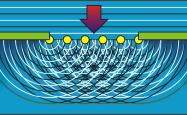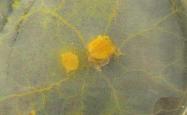This downloadable document is a Standard Operating Procedure (SOP) and detailed procedure for demonstrating the Van de Graaff generator.


This downloadable document is a Standard Operating Procedure (SOP) and detailed procedure for demonstrating the Van de Graaff generator.

This online resource investigates the wave and particle models of energy transfer.

This resource has been updated as it is a part of the GUIDELINES for best practice for
Burning Magnesium Ribbon: Are students allowed to burn magnesium ribbon in a Bunsen burner flame using tongs as a class activity or should it just be a teacher demo?

This online resource helps develop skills for science investigations.
Chemical Cell: Acidified Potassium Dichromate
Chemical Storage Timeframes: I was wondering if there are any guidelines that
Aluminium powder: I have just purchased some Aluminium powder and the MSDS from the supplier ( Chem supply ) states Non Hazardous and Non dangerous goods.

This resource book provides a hands-on introduction to the topic of biodiversity.

This booklet helps with the teaching of biodiversity.